Archives: Documents
-
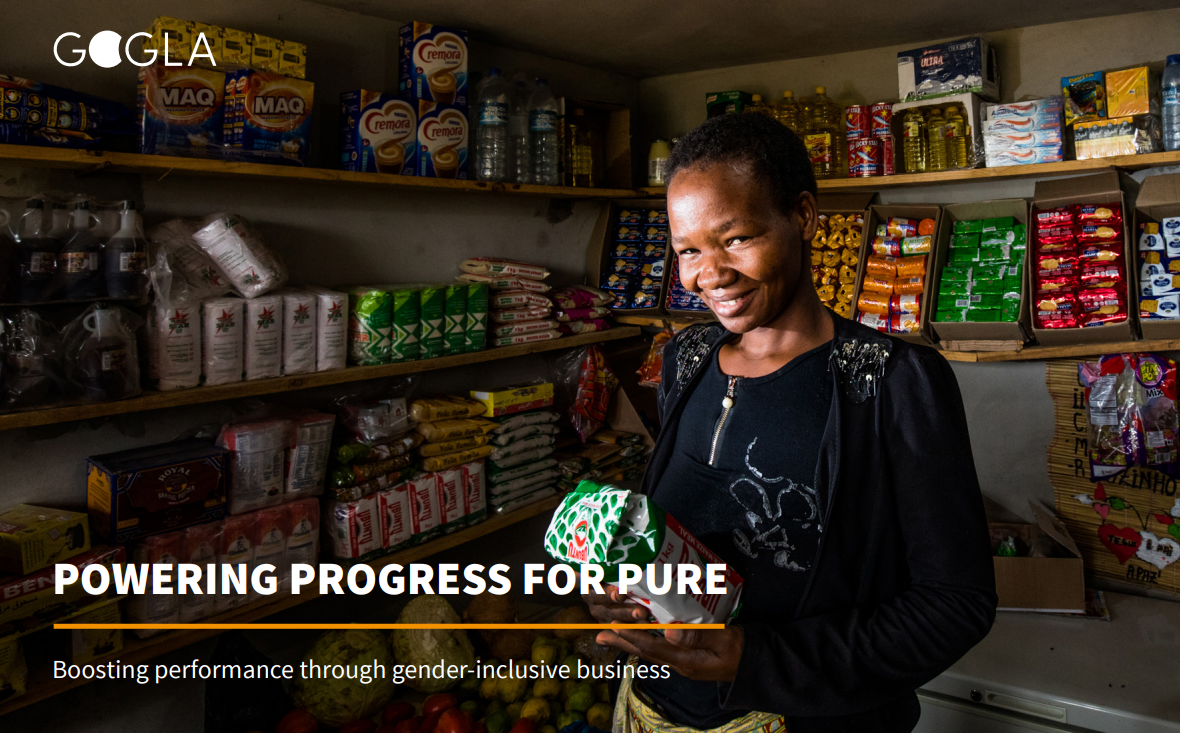
Powering Progress for PURE
This research, commissioned by GOGLA with support from the IKEA Foundation, examines how PURE companies can build gender-inclusive businesses that effectively serve women’s energy needs while developing sustainable business models. Through comprehensive desk research, key informant interviews with stakeholders including PURE (Productive Use of Renewable Energy) companies and subject matter experts, and detailed case studies,…
-

RBF Projects that Leave No One Behind: A Practical Guide for Designing Inclusive Results-Based Financing (RBF) Projects
To achieve Sustainable Development Goal 7 (SDG7) by 2030, prioritising the principle of Leave No One Behind (LNOB) is imperative to achieve universal energy access. A broad coalition, including UN member states, donors, and implementing agencies has pledged to integrate the LNOB principle within their interventions, recognising it as fundamental for fostering sustainable progress toward…
-
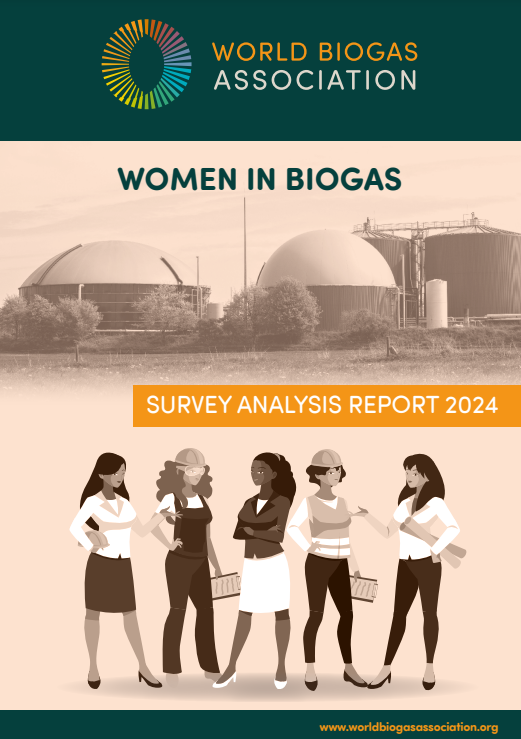
Women in Biogas. Survey Analysis Report 2024
This report explores the current state of gender representation in the biogas sector and highlights initiatives and policies needed to enhance female participation and leadership. It explores how women interact with the biogas sector as participants. Specifically, it analyses the progress and current place of women in the biogas industry relative similar industries
-
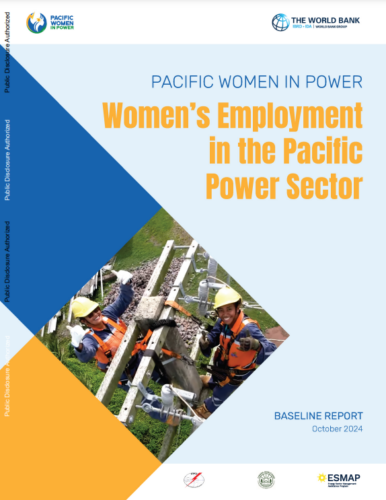
Women’s Employment in the Pacific Power Sector
Pacific Island Countries (PICs) face economic challenges due to their remoteness, limited resources, and gender inequality. The energy sector plays a crucial role in addressing these challenges by providing reliable and climate sustainable energy solutions. Increasing women’s employment in the energy sector is essential for building a strong and sustainable energy industry, as the sector…
-
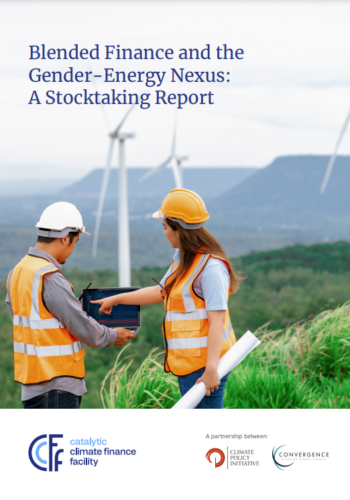
Blended Finance and the Gender-Energy Nexus: A Stocktaking Report
This report aims to take stock of current practices in the gender-responsive climate blended finance market, with a focus on energy. The report is divided into three sections: Part 1 begins with an overview of key data trends in the gender-responsive climate blended finance market, including across sectors, vehicles, regions, and investors. Part 2 examines…
-
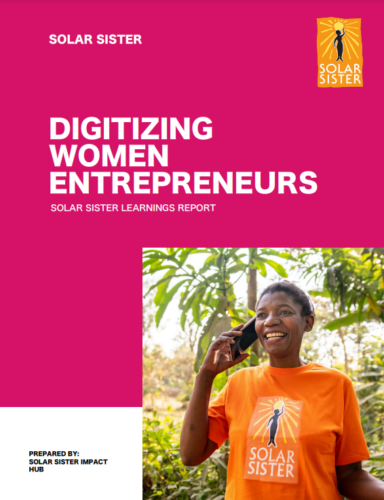
Digitizing Women Entrepreneurs
As the world becomes more digital, women are being left behind. According to reports from UN Women, the digital gender divide is particularly pronounced in developing regions, where women are 20% less likely than men to be online, and 30% less likely to have access to a smartphone. It is estimated that by 2030, 230…
-
Gender Equality and Social Inclusion: Lessons and Good Practices from Clean Cooking Programs
Higher-tier clean cooking (HTC) markets are growing globally and have the potential to address the various harmful impacts of inefficient and polluting cookstoves that are a major cause of deaths among women and children.
-

Climate Resilience Project. Performance & Impact Report
Solar Sister’s network of more than 11,000 Solar Sister Entrepreneurs bring climate-resilient technologies to their communities while building a pathway to prosperity for themselves and their families through entrepreneurship. The communities Solar Sister works in often face immense barriers to accessing economic opportunities including gender disparity, economic and political instability, and climate disaster. Solar Sister…
-
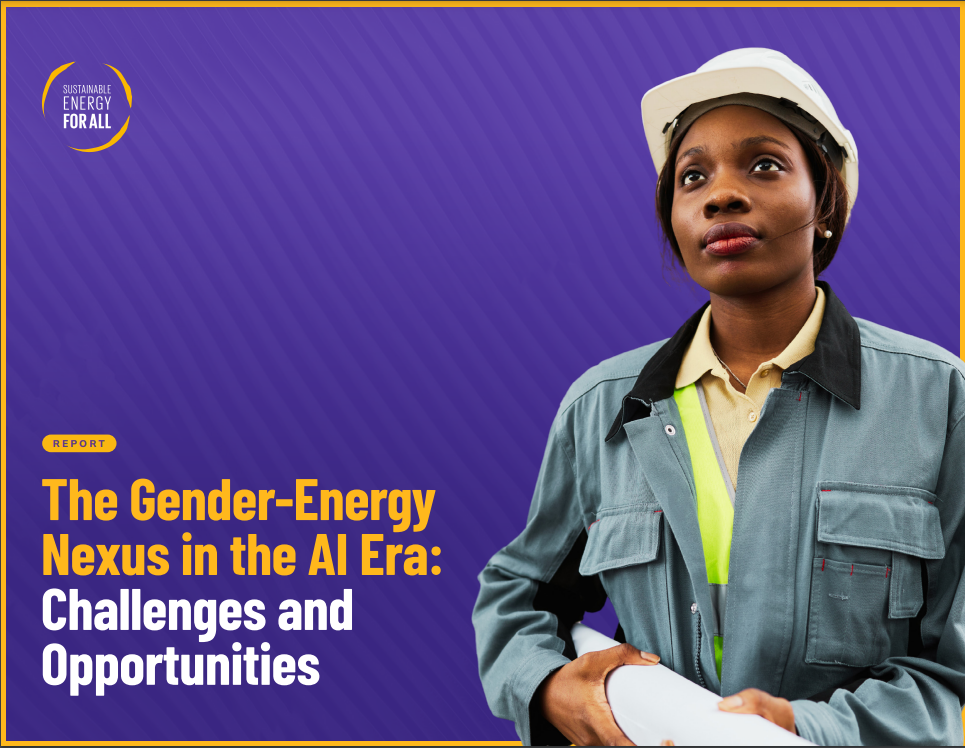
The Gender-Energy Nexus in the AI Era: Challenges and Opportunities
The intersection of gender, energy and Artificial Intelligence (AI) presents both challenges and opportunities for achieving gender equality and sustainable development. AI can be a critical enabler in accomplishing 134 of the 169 targets under the framework of the Sustainable Development Goals (SDGs), with over 600 AI-enabled use cases identified. However, the impact of AI…
-
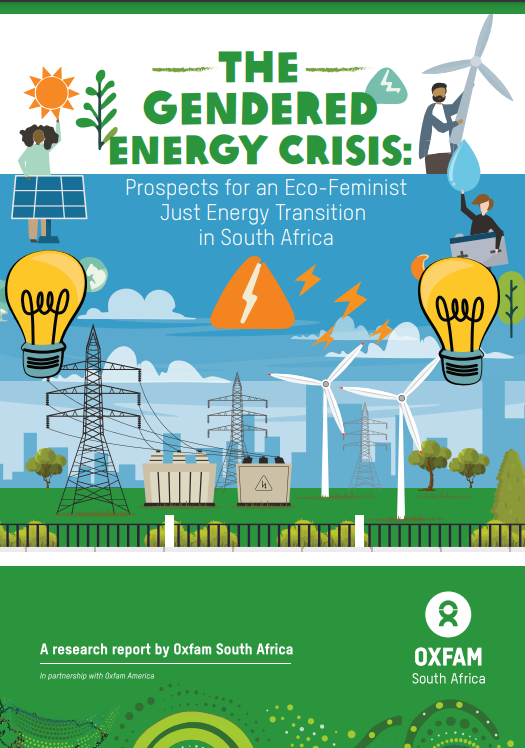
The Gendered Energy Crisis: Prospects for an eco-feminist Just Energy Transition in South Africa
This report is focused on identifying the ongoing challenges at Eskom, the South African power utility, thus shedding light on democratic processes and human rights considerations. It adopts a feminist lens in its analysis of the electricity crisis, exploring potential feminist approaches to restructuring the existing electricity grid infrastructure. This includes analyzing the integration of…
-
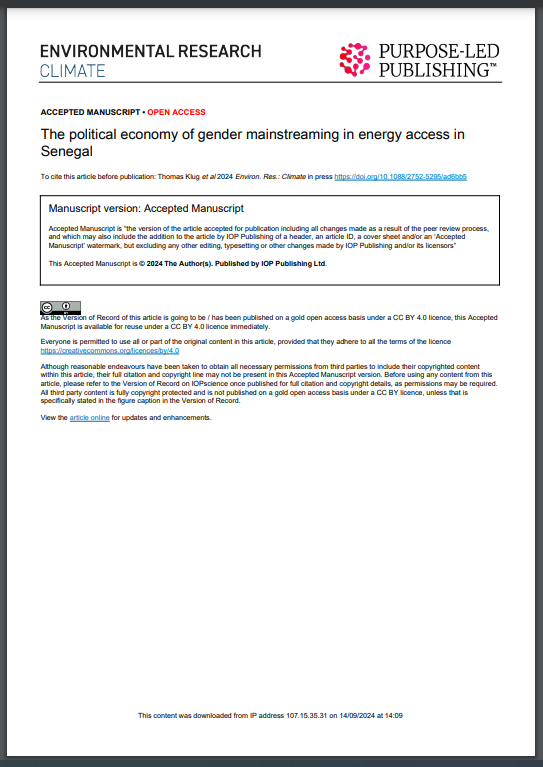
The political economy of gender mainstreaming in energy access in Senegal
Accepted manuscript In June 2017, the Economic Community of West African States (ECOWAS) adopted the Policy for Gender Mainstreaming in Energy Access to integrate gender equity in West Africa’s energy and climate policy making. The policy represents the first regional gender and energy policy in the world, establishing a framework to enhance understanding at the…
-
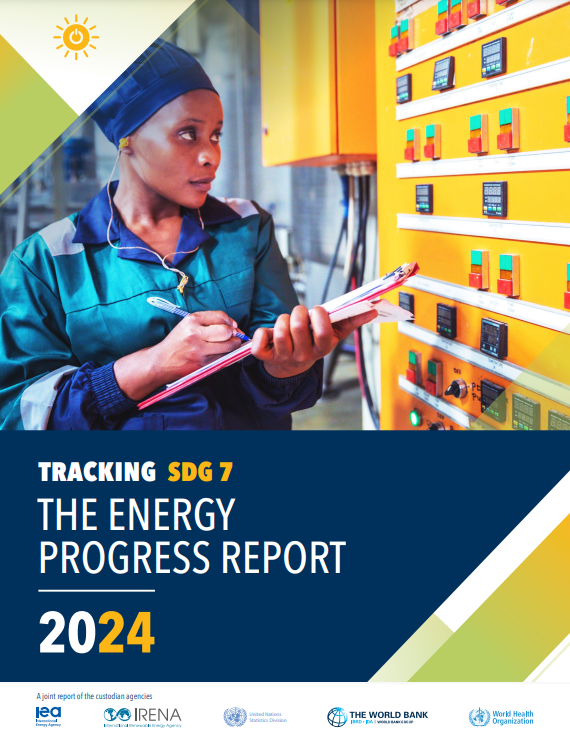
Tracking SDG 7 – 2024 Report
Since its inception in 2018, Tracking SDG 7: The Energy Progress Report has become the global reference for information on progress toward the achievement of Sustainable Development Goal 7 (SDG 7) of the UN 2030 Agenda for Sustainable Development. The report is produced annually by the five custodian agencies responsible for tracking progress toward the…

